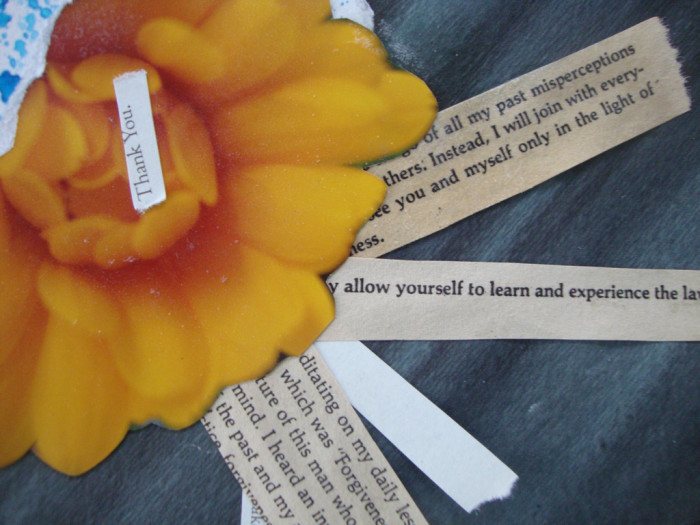One of the central themes of a true spiritual life is the ability to find compassion for ourselves and others. The Buddha once said,”Like a mother who protects her child, her only child, with her own life, one should cultivate a heart of unlimited love and compassion towards all living beings.” This sounds so incredibly beautiful, like a spiritual utopia. But at age 46, I must admit that I still doubt whether this type of love is ever possible while we exist in human form. So how do we find compassion?
We Love the People We Love
There are people, now and in my past, whom I’ve loved with a tremendous, almost overwhelming kind of love. Their presence in my life illuminated the best parts of me. They were there during my toughest times, and they shared their joy and wisdom with me. And I have a tremendous amount of compassion for their struggles and losses. Sometimes I feel so much compassion for these people, that I can feel my heart breaking when I know that they are experiencing pain. I can’t even bear to watch those late night ASPCA commercials. In my view, “compassion” is feeling another’s pain; being able to step into someone else’s shoes for even a brief moment, no matter how painful it may be.
Compassion for those whom I love is natural for me. But what about those I don’t love, or even like, for that matter? When it comes to these people, how spiritual and compassionate am I?
And Then There Are Those People We Just Don’t Like
As long as we are human, we will always come across people who may have wronged us in some way. Other times, we just don’t get along with some people: “she just rubs me the wrong way,” or “he really gets under my skin.” Sometimes, we form intimate friendships with people, and once they actually give us the honor of seeing their flaws, we find that we don’t like who they are, or who we think they are. A good and wise friend told me recently when I was pulling my hair out about “why” someone would behave so hurtfully: “you have to try to see beyond their behavior, and see the pain and suffering, from which it comes.” These were powerful words to me, and I am most surely still processing that wisdom. But it was the beginning of a shift for me, in being able to see something that I have known intellectually for years: that our behaviors can only come from two places, Love or Fear.
So many of us are great at performing spiritual rituals, but not so great at embodying the actual “practice” of spirituality. True spirituality does not allow love and compassion only for those people in our lives with whom we get along and have created a special bond with; true spirituality can be described as what spiritual teacher and author, Sark, says, “I am indelibly connected to EVERYONE.” What good is the practice of compassion, if it is not freely given to those we “don’t like,” or even people we may label as evil? Compassion should not be based on, or dependent upon, one’s understanding of another’s behavior. It is not my spiritual work to understand you, or to help you change. My work is to continually shift my own perceptions, and to realize that we are all One. As Buddhist teacher, Mooji, would say, it doesn’t matter whether we are friends, lovers, partners, family, sisters, brothers, or perceived enemies; it is all a part of the Limitless One.
So what steps can we take towards living a truly compassionate life?
To practice compassion for people we just don’t like, we need to begin by seeing them as a part of ourselves being reflected back to us. When we encounter behaviors in others that annoy us, we need to understand that something within us, at a soul level, had the intention of confronting that behavior in order to learn from it. It is extremely difficult to realize that ALL is a reflection of the inner self, in some way. Often, it is our unknown, and unspoken fears that draw certain people and experiences onto our paths. We develop true compassion by consciously shifting our our thoughts from, “YOU are someone I don’t like,” to “I invited this experience into my life to teach me how to love.”
Spiritual teacher and author Panache Desai was once asked during an interview, “Why are we put in a specific place, in the company of certain people whom we feel we have nothing in common with?” His very powerful, but simple answer was, “We are where we are, to love the people that are there.” This wisdom is so simple, it’s startling. We often want to hear a long list of extremely arduous tasks and rituals we must complete for spiritual growth and evolution; then we would have a great excuse as to why it’s so difficult to have compassion for everyone. Though the answer is simple, it isn’t easy, and this is why I feel that one of the most important steps to building our capacity for compassion, is to give it to ourselves first. Once we are splendidly full of compassion for ourselves, we can allow it to freely flow to others, even those we simply “don’t like.”
More on love for self and others: New Year’s Resolution: Become More Loving
Are You in Danger of a Burnout?
Also by Kimberly: Allowing Your Heart to Guide Your Life
__
Photo: Julie Gordon Scott via Flickr





